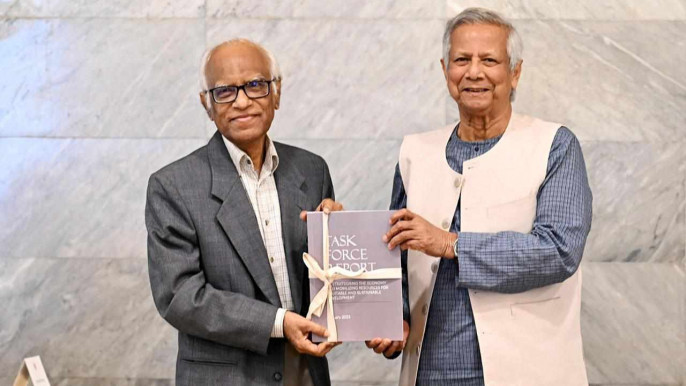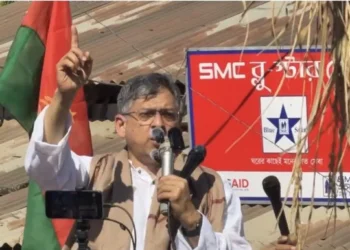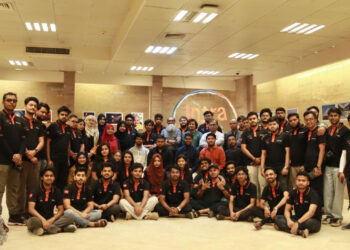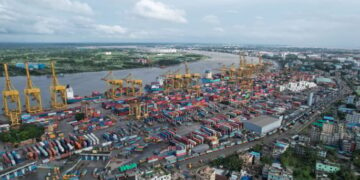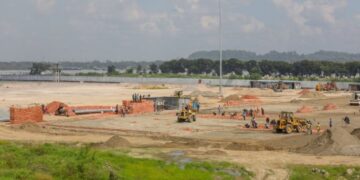Adviser Wahiduddin Mahmud, Chief Adviser Muhammad Yunus on 30 Jan. Photo: CA Press Wing
The research says that Bangladesh’s competitive position in the world would be improved by the application of digital and artificial intelligence (AI) technology, as well as the creation of institutions that support excellence and regulatory reform.
A new research released yesterday (30 January) stated that Bangladesh can create a successful, democratic, and resilient nation for present and future generations by transforming obstacles into opportunities via strong leadership and strategic planning.
The report of a task group titled “Re-strategising the Economy and Mobilising Resources for Equitable and Sustainable Development” was given to the chief adviser by Wahiduddin Mahmud adviser of education and planning. According to CA’s press wing, Wahiduddin handed the report to Chief Adviser Muhammad Yunus at the Chief Adviser’s Office in Tejgaon. The 12-member task force was established on September 10 with the goals of reframing development initiatives, identifying financial system leaks, and reestablishing discipline in project implementation.
The report stated that by giving priority to significant projects in healthcare, education, and governance, the interim government can rebuild public confidence and generate energy for long-term progress. Pilot projects will yield insightful information that will allow for iterative improvements and wider implementation in subsequent reforms. The actions and recommendations presented serve as an initial roadmap for economic reform, embodying a vision for a transformed Bangladesh that is responsive to its people’s needs.
According to the report’s conclusion, these suggestions ultimately demand that individuals and government representatives share responsibility for creating a better future. The suggested ideas provide a strategy framework to direct Bangladesh’s interim government in solving urgent issues and promoting social progress, economic expansion, and environmental sustainability. Targeted interventions that might bring about long-lasting change are desperately needed in light of environmental issues and inefficiencies in public service.
These initiatives will improve transparency and accountability by encouraging cooperation with citizens and youth groups, which will create a more positive environment. In the end, the proposals are intended to serve as an inspiration for significant change, addressing urgent problems impacting citizens’ daily lives and establishing the framework for a robust and forward-thinking society.
Source: The Business Standard

